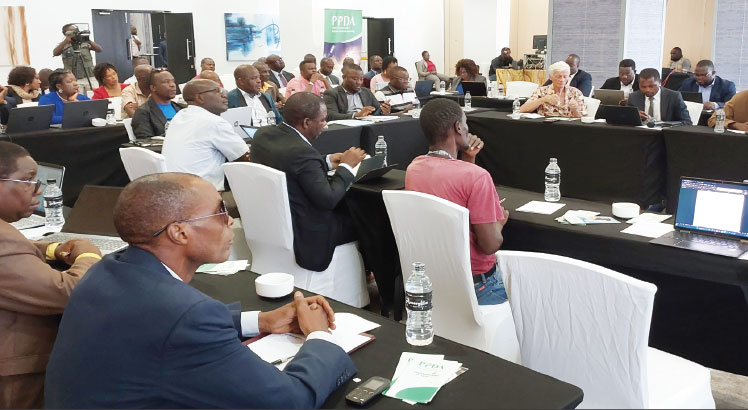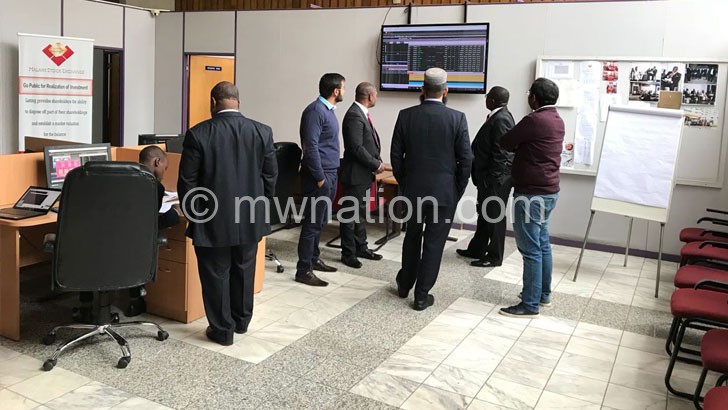Ray of hope for black indigenous businesses
Malawi’s black indigenous businesses have commended progress on the 60:40 procurement preferential provision, but say more needs to be done to further uplift black-owned enterprises.
The assertion comes against the backdrop of complaints from some indigenous black Malawians that they have been failing to benefit from the 60:40 provision as government had not developed enabling regulations to operationalise and offer guidance on the process of implementing the provision.
In a written response on Tuesday, Black Indigenous Business Network president Kate Kamwangala said while they are yet to fully benefit from the law that compels procuring and disposing entities to award 60 percent of all contracts to indigenous black Malawian contractors four years after its enactment, they remain hopeful.
She said they hope that one day, the 60 percent preferential provision will apply to the national budget and not necessarily on the total sum of tenders.

Said Kamwangala: “Some procuring entities are adhering to the policy and we have seen a lot of black indigenous businesspeople winning contracts.
“We just need to be aggressive to tap from this 60 percent margin of preference that government is promoting.”
The preferential treatment is provided for under Section 44 (10) of the Public Procurement and Disposal of Assets Act and compels procuring and disposing entities to award 60 percent of all contracts under the National Competitive Bidding to indigenous black Malawians and the remaining 40 percent to others.
However, Public Procurement and Disposal of Assets Authority (PPDA) public relations and communications manager Kate Kujaliwa said in an e-mail response yesterday that the 60:40 implementation has not been enforced as the regulations on how procuring and disposing entities should be implementing this provision are yet to be developed.
She said in the absence of the regulations, PPDA issued a circular for the 20 percent preference for indigenous Malawian bidders.
Said Kujaliwa: “In view of the 20 percent preference, the progress has been registered, but not as expected. There are plans to enhance the enforcement
“The PPDA is currently reviewing the Public Procurement and Disposal of Assets Act (2017). The whole essence of the review is to strengthen the law and cover some existing gaps.”
In the past four years, indigenous black Malawians have been failing to benefit from the provision as government had not developed the enabling regulations to operationalise and offer guidance on implemention the provision.
In a letter to Attorney General Thabo Chakaka Nyirenda dated January 19 2023, Kamwangala complained that monopoly-oriented foreign business actors, particularly of Asian origin, who collude with some foreign manufacturing firms and also carrying out a scheme that blocks Malawian black indigenous firms from getting manufacturers’ authorisation letter, which is a key document in bid response requirements.
She indicated that the manufacturers’ authorisation letters were guaranteeing that specified items required in the bid call have been identified and allows the procuring entity to ascertain the quality and other technical specifications of the items before the purchase is made.
The network, in a letter dated January 5 2023, also reached out to Yamaha Motors on its decision to offer Yamaha dealership in Malawi to an entity owned by non-indigenous firm, Paramount Holdings Limited.
They argued that the dealership would not fall under a foreign direct investment, but rather a distribution activity under the regulation of indigenous businesses promoting policies.
In his response to the network, Chakaka-Nyirenda said monopoly and unfair competition must not be tolerated
But he said the implication of the Act is that procurement entities must at all times allocate 60 percent quota in favour of indigenous black Malawians in respect of procurement of goods and services.
He advised procurement entities to ensure that policies and bid documents are reviewed to enable indigenous black Malawians participate in public procurement.
Said Chakaka Nyirenda: “The issues highlighted in the complaint raises elements of unfair competition and monopoly.
“I would also like to request PPDA Authority as well as Competition and Fair Trading Commission to investigate all allegations raised by the network.”
Meanwhile, Stansfield Motors Limited obtained a court order stopping Yamaha Motor Company Limited of Japan and Paramount Holdings Limited from effecting a Yamaha sole distributorship agreement in Malawi.
The order comes against a background of the Japanese firm having purportedly certified Paramount Holdings Limited as its sole importer and seller of its products.
But through the injunction from the High Court of Malawi Commercial Division, the court suspended the agreement.





